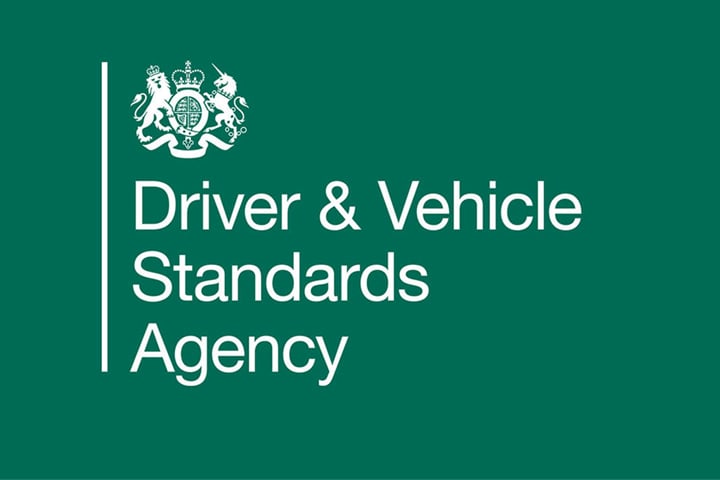Are you being Professional?


How do you begin your client's journey?
Is it a case of turn up at their house and sit in the car waiting for them to come out?
Or do you start your professional image right from the moment contact has been made regarding taking lesson?
Do you arrange a meeting with the client before their first lesson and talk them through how the process of learning to drive works.?
What they should expect from you and what you will expect from them?
How long the process roughly takes and what is involved in the training program (obviously this changes from client to client)?
Do you check they meet the legal requirements to take lessons?
Do you check their eyesight?
Do you supply a set of Terms and Conditions?
Do you talk about cancellation charging?
Do you talk about cleanliness?
Do you talk about time keeping?
Do you let them know whether you are an ADI or PDI?

Be on time! (apologise if caught in traffic and make up any lost time)
Present yourself and your car in a clean and tidy manner!
Be polite!
Be courteous!
Answer your clients questions!
Give a value for money lesson!
Be adaptable to your client! (within reason)
The lesson is about learning to drive, not your life, stay on topic!
General chit chat is fine but don't lose focus of what your client is paying you for.
The contract between you and your client is a professional one and should remain so and you should treat them with respect.
Be non discriminatory throughout your lessons on all subjects.
Ensure you meet GDPR regulations regarding your pupils data.
Don't offer information on anything you are not qualified to give information on!
Ensure there are two sides to the car, your side for instructing and the clients side for driving. The only time these sides should be crossed is if you need to intervene with the steering wheel or you are carrying out a demonstration and you are driving.
Don't become involved with your pupil's private life, likewise they do no need to know about yours.
Ensure your learners understand your pricing structure, and are supplied an account of what monies have been paid or what is due. Good housekeeping with your records is important to avoid any confusion during your time with your client.
Stick to the DVSA's code of Conduct!


Do you ask them how they would like to be referred to, or do you think they like a nickname?
Assuming someone called Rebecca wants to be called Bec's or Becky might be offensive to your pupil.
Likewise using names that you think will ease any tension and make your pupil feel more at ease may actually raise any anxieties they have.
Depending on where you live, it may be local terminology and acceptable to call your friend, Flower, Hun, Babe, Bud, Mate, Chuck, love, Sweetie, geezer, darling or whatever, but is this engaging properly with your pupil? is it creating a barrier with them, are they ok with it?
The most sensible and professional way to speak with your pupil is by finding out how they wish to be referred to.
It may be that they have a name on their licence that was their birth name and they actually hate it, and have always been referred to by their mates by some other name. But remember, you are their driving instructor NOT THEIR MATE. Ask them how they would like to be referred to and keep it simple and professional.
Remember, if your pupil is not engaged with the learning process, learning will not take place. Constantly referring to your pupil as babe, mate, etc may just ditch any rapport you may be trying to achieve with your pupil.
Physical contact is a NO GO ZONE!
As with how you refer to your pupil, they may find it uncomfortable with you having a nickname for them, but when it comes to physical contact that becomes a totally different subject.
You may well be a hugs type of person, and you meet and greet your friends and family with a hug.
Your pupil is your client! physical contact is an area where under the code of conduct for an instructor it is a no go zone.
Inappropriate contact even by accident should not be happening. If by chance you do make contact or your pupil makes contact with you, maybe because your leg was in their way when trying to change gear, you should apologise and ensure your leg does not interfere with them again.

1. Personal conduct
Driver trainers will be professional, comply with the law, keep clients safe and treat them with respect.
The instructor agrees to:
at all times behave in a professional manner towards clients in line with the standards in the national standard for driver and rider training
at all times comply with legislative requirements including:
the protection of personal freedoms, the prevention of discrimination based on age, disability, gender, race, religion or sexual orientation
not using mobile devices like phones when driving or supervising client’s driving and only when parked in a safe and legal place
demonstrating a high standard of driving and instructional ability upholding safety standards including showing consideration for all other road users particularly pedestrians, cyclists, motorcyclists and horse riders
consumer, workplace and data protection regulations, the handling, storing, use and dissemination of video or audio recordings made in or around their tuition vehicle
avoid inappropriate physical contact with clients
avoid the use of inappropriate language to clients
not initiate inappropriate discussions about their own personal relationships and take care to avoid becoming involved in a client’s personal affairs or discussions about a client’s personal relationships, unless safeguarding concerns are raised
avoid circumstances and situations which are or could be perceived to be of an inappropriate nature
respect client confidentiality whilst understanding the actions to take if a client reveals concerns about their private lives
treat clients with respect and consideration and support them to achieve the learning outcomes in the national standard for driving cars and light vans (category B) as efficiently and effectively as possible
ensure that their knowledge and skills on all matters relating to the provision of driver training comply with current practice and legislative requirements
use social network sites responsibly and professionally:
ensuring that clients personal information is not compromised
ensuring when using social media for marketing purposes that what is written is compliant with privacy and data protection legislation pertaining to digital communications, the laws regarding spam, copyright and other online issues
treating other users of social media including clients, colleagues and their views with respect
be careful not to defame the reputation of colleagues, DVSA, driving examiners or the ADI register
not distribute, circulate or publish footage taken of driving tests from in-car cameras, without permission from DVSA and the client
Driver trainers will account for monies paid to them, record client’s progress, advise clients when to apply for their driving tests and guide them fairly through the learning process.
The instructor agrees to:
safeguard and account for any monies paid in advance by the client in respect of driving lessons, test fees or for any other purpose and make the details available to the client on request
on or before the first lesson make clients aware of both this code of practice and their terms of business which should include:
legal identity of the school/instructor with full postal address and telephone number at which the instructor or their representative can be contacted
the current price and duration of lessons
the current price and conditions for use of a driving school car for the practical driving test
the terms which apply to cancellation of lessons by either party
the terms under which a refund of lesson fees may be made
the procedure for making a complaint
check a client’s entitlement to drive the vehicle and their ability to read a number plate at the statutory distance on the first lesson and regularly during their training
make a record of a client’s progress, which will include the number of lessons provided, and ensure that the client is aware of their progress and future training requirement to achieve their driving goals
discuss with and advise a client when to apply for their driving tests, taking account of DVSA’s cancellation rules, local waiting times and the instructor’s forecast of a client’s potential for achieving the driving test pass standard
not cancel or rearrange a driving test without the client’s knowledge and agreement, in the event of the instructor deciding to withhold the use of the school car for the driving test, sufficient notice should be given to the client to avoid loss of the DVSA test fee
ensure that when presenting a client for the practical driving test:
the client has all the necessary documentation to enable the client to take the test
the vehicle complies with all aspects of motoring law, displays the instructor’s certificate or licence correctly and is fitted with an extra interior rear-view mirror and correctly positioned L or optionally D plates in Wales
accompany the client on their practical driving test and listen to the debrief, when requested to do so by the client
Driver trainers will take care to advertise and promote their businesses in a clear and fair manner.
The instructor agrees that:
the advertising of driving tuition shall be clear, fair and not misleading
any claims made in advertising shall be capable of verification and comply with current CAP Advertising Codes
advertising that refers to pass rates should not be open to misinterpretation and the basis on which the calculation is prepared should be made clear
Driver trainers will deal promptly with any complaints received and aim for speedy resolution of any grievances.
The instructor agrees that:
complaints by clients should be made in the first instance to the driving instructor, driving school or contractor following the training provider’s complaints procedure
if, having completed the procedure, the client has been unable to reach an agreement or settle a dispute further guidance may be sought:
if a client believes that their instructor is not providing a satisfactory business service they can contact their local Citizens Advice Bureau for guidance
if clients are unhappy with their instructor’s professional service, the client can contact the ADI Registrar by emailing instructorconduct@dvsa.gov.uk